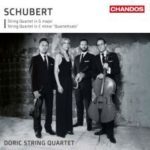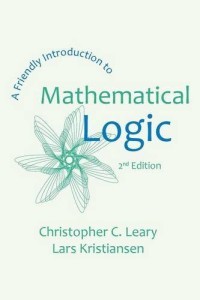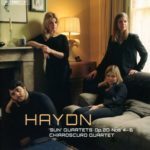Peter Smith's Blog, page 78
December 16, 2017
Bob Hale (1945-2017)
I am very sorry to hear that the philosopher Bob Hale has died. I have always admired his work, and when — back in the day — we used to bump into each other at conferences, he always struck me as an admirable man. Here is an interesting long interview with him from a year ago.
December 15, 2017
CD of the year 2017 — runners up!
As I said, those lists of books-of-the-year only make me feel quite hopelessly out of touch, and leave me rather sadly wondering how to possibly find the time to read more. But lists of CD recommendations are much more cheering, and encourage enjoyable experimental listening on Apple Music (other streaming services are available …). So let me share some of my favourite new recordings from 2017. Here are my five runners-up for CD of the year, in no special order.
Glenn Gould recorded his 1955 Goldberg Variations a few months before his 23rd birthday. Now Beatrice Rana has recorded the same music when less than a year older. And this is another quite extraordinary performance. Utterly gripping from the beginning. From the Gramophone review: “The variations that in some hands become merely strong and affirmative are beguilingly multi-layered …. Gentler numbers benefit from Rana’s ability to conjure the most translucent of textures … In the famous so-called ‘Black Pearl’ (Var 25) she allows Bach’s tortured dissonances to speak for themselves … the tension finally released by the joyously airborne Var 26. In some hands, these last variations, which build on that sense of joy, can seem rather forced …. Not here, though, where they range from the bucolic to the transcendental. After a Quodlibet that rejoices in its simple good humour, the return of the Aria is as emotionally multifaceted as you would expect – mysterious, quizzical, noble, resigned, hopeful – setting the seal on a life-affirming disc.”
Ivana Gavrić‘s Chopin disc groups some of Chopin’s earlier Mazurkas, seperated by a couple of Preludes, a Nocturne and the Berceuse. This makes for something like a concert programme (you should listen up to the Berceuse — which is quite hauntingly played, her left hand rocking the cradle in a way that somehow catches at the heart — and then take an interval!). Some of the Mazurkas are very familiar, but many were (as good as) new to me. Her unshowy, undeclamatory, playing seems just entirely appropriate to the scale and atmosphere of the pieces, often tinged with melacholy as they are. She is across the room from a group of you, friends and family perhaps, rather than performing to a concert hall. And repeated listenings reveal the subtle gestures and changes in tone she uses to shape the dances; these are wonderfully thought-through performances.
Haydn’s inexhaustible humanity can be a comfort and inspiration in these dark times, no? So I have returned again and again to the Chiaroscuro Quartet‘s wonderful exploration of the Opus 20 quartets, completed this year. Four friends, occasionally coming together to play concerts and record, perform with delight and bold inventiveness and warm insight. Their use of gut strings makes for wonderful timbres, now earthy, now confiding, now echoing a viol consort. This is extraordinary playing, and not just from Alina Ibragimova who leads the quartet: the sense of ensemble and the interplay of voices puts some full-time quartets to shame. Richly rewards that repeated listening.
 And here is Alina Ibragimova again, this time continuing her long-standing partnership with Cédric Tiberghien. They have now recorded four double CDs of Mozart Sonatas — in fact there are two sets from this year. The early pieces written by the very young Wolfgang are dispatched with affection and bring out the moments of musical magic that are scattered even there. The mature Mozart is played as well as I have ever heard. As the BBC Music Magazine said of one of the discs, “Tiberghien’s limpid phrasing, radiant cantabile and velvety, cushioned tone provides a continual source of pleasure, complemented ideally by Ibragimova’s silvery-toned exploratory zeal, as she delights in Mozart’s gentle textual interplay, as though discovering its special qualities for the first time.” A constant delight.
And here is Alina Ibragimova again, this time continuing her long-standing partnership with Cédric Tiberghien. They have now recorded four double CDs of Mozart Sonatas — in fact there are two sets from this year. The early pieces written by the very young Wolfgang are dispatched with affection and bring out the moments of musical magic that are scattered even there. The mature Mozart is played as well as I have ever heard. As the BBC Music Magazine said of one of the discs, “Tiberghien’s limpid phrasing, radiant cantabile and velvety, cushioned tone provides a continual source of pleasure, complemented ideally by Ibragimova’s silvery-toned exploratory zeal, as she delights in Mozart’s gentle textual interplay, as though discovering its special qualities for the first time.” A constant delight.
 The Doric Quartet give us a driven, intense, performance of two of Schubert’s greatest works. From the Gramophone review: “Even in a work as familiar as the Quartettsatz the Doric lend character through elasticity of phrasing, which nicely counterbalances the piece’s inherent energy. … The main event, the G major quartet, is very impressive too, spacious without ever being ponderous. … The quartet build up their own kind of relentlessness, one that becomes more and more potent upon repeated hearings.” Convincing and emotionally gripping playing. (If you like the Pavel Haas’s take-no-prisoners Death and the Maiden, you should like this too.)
The Doric Quartet give us a driven, intense, performance of two of Schubert’s greatest works. From the Gramophone review: “Even in a work as familiar as the Quartettsatz the Doric lend character through elasticity of phrasing, which nicely counterbalances the piece’s inherent energy. … The main event, the G major quartet, is very impressive too, spacious without ever being ponderous. … The quartet build up their own kind of relentlessness, one that becomes more and more potent upon repeated hearings.” Convincing and emotionally gripping playing. (If you like the Pavel Haas’s take-no-prisoners Death and the Maiden, you should like this too.)
Others that almost made it: the very fine Schone Mullerin from Christian Gerhaher and Gerold Huber (but how often can you listen to that?), the second Scarlatti disc from Angela Hewitt, and for lighter relief, ‘The Italian Job’ from Adrian Chandler and La Serenissima.
Finally, what about the much hyped recording of the last two of Schubert’s sonatas from Krystian Zimerman? Try the opening of the first or second movements of D960 — I found the playing to be so affected, the hesitations and rushes forward so unnatural as to be simply unbearable.
CD of the year — runners up!
As I said, those lists of books-of-the-year only make me feel quite hopelessly out of touch, and leave me rather sadly wondering how to possibly find the time to read more. But lists of CD recommendations are much more cheering, and encourage enjoyable experimental listening on Apple Music (other streaming services are available …). So let me share some of my favourite new recordings from 2017. Here are my five runners-up for CD of the year, in no special order.
Glenn Gould recorded his 1955 Goldberg Variations a few months before his 23rd birthday. Now Beatrice Rana has recorded the same music when less than a year older. And this is another quite extraordinary performance. Utterly gripping from the beginning. From the Gramophone review: “The variations that in some hands become merely strong and affirmative are beguilingly multi-layered …. Gentler numbers benefit from Rana’s ability to conjure the most translucent of textures … In the famous so-called ‘Black Pearl’ (Var 25) she allows Bach’s tortured dissonances to speak for themselves … the tension finally released by the joyously airborne Var 26. In some hands, these last variations, which build on that sense of joy, can seem rather forced …. Not here, though, where they range from the bucolic to the transcendental. After a Quodlibet that rejoices in its simple good humour, the return of the Aria is as emotionally multifaceted as you would expect – mysterious, quizzical, noble, resigned, hopeful – setting the seal on a life-affirming disc.”
Ivana Gavrić‘s Chopin disc groups some of Chopin’s earlier Mazurkas, seperated by a couple of Preludes, a Nocturne and the Berceuse. This makes for something like a concert programme (you should listen up to the Berceuse — which is quite hauntingly played, her left hand rocking the cradle in a way that somehow catches at the heart — and then take an interval!). Some of the Mazurkas are very familiar, but many were (as good as) new to me. Her unshowy, undeclamatory, playing seems just entirely appropriate to the scale and atmosphere of the pieces, often tinged with melacholy as they are. She is across the room from a group of you, friends and family perhaps, rather than performing to a concert hall. And repeated listenings reveal the subtle gestures and changes in tone she uses to shape the dances; these are wonderfully thought-through performances.
Haydn’s inexhaustible humanity can be a comfort and inspiration in these dark times, no? So I have returned again and again to the Chiaroscuro Quartet‘s wonderful exploration of the Opus 20 quartets, completed this year. Four friends, occasionally coming together to play concerts and record, perform with delight and bold inventiveness and warm insight. Their use of gut strings makes for wonderful timbres, now earthy, now confiding, now echoing a viol consort. This is extraordinary playing, and not just from Alina Ibragimova who leads the quartet: the sense of ensemble and the interplay of voices puts some full-time quartets to shame. Richly rewards that repeated listening.
 And here is Alina Ibragimova again, this time continuing her long-standing partnership with Cédric Tiberghien. They have now recorded four double CDs of Mozart Sonatas — in fact there are two sets from this year. The early pieces written by the very young Wolfgang are dispatched with affection and bring out the moments of musical magic that are scattered even there. The mature Mozart is played as well as I have ever heard. As the BBC Music Magazine said of one of the discs, “Tiberghien’s limpid phrasing, radiant cantabile and velvety, cushioned tone provides a continual source of pleasure, complemented ideally by Ibragimova’s silvery-toned exploratory zeal, as she delights in Mozart’s gentle textual interplay, as though discovering its special qualities for the first time.” A constant delight.
And here is Alina Ibragimova again, this time continuing her long-standing partnership with Cédric Tiberghien. They have now recorded four double CDs of Mozart Sonatas — in fact there are two sets from this year. The early pieces written by the very young Wolfgang are dispatched with affection and bring out the moments of musical magic that are scattered even there. The mature Mozart is played as well as I have ever heard. As the BBC Music Magazine said of one of the discs, “Tiberghien’s limpid phrasing, radiant cantabile and velvety, cushioned tone provides a continual source of pleasure, complemented ideally by Ibragimova’s silvery-toned exploratory zeal, as she delights in Mozart’s gentle textual interplay, as though discovering its special qualities for the first time.” A constant delight.
 The Doric Quartet give us a driven, intense, performance of two of Schubert’s greatest works. From the Gramophone review: “Even in a work as familiar as the Quartettsatz the Doric lend character through elasticity of phrasing, which nicely counterbalances the piece’s inherent energy. … The main event, the G major quartet, is very impressive too, spacious without ever being ponderous. … The quartet build up their own kind of relentlessness, one that becomes more and more potent upon repeated hearings.” Convincing and emotionally gripping playing. (If you like the Pavel Haas’s take-no-prisoners Death and the Maiden, you should like this too.)
The Doric Quartet give us a driven, intense, performance of two of Schubert’s greatest works. From the Gramophone review: “Even in a work as familiar as the Quartettsatz the Doric lend character through elasticity of phrasing, which nicely counterbalances the piece’s inherent energy. … The main event, the G major quartet, is very impressive too, spacious without ever being ponderous. … The quartet build up their own kind of relentlessness, one that becomes more and more potent upon repeated hearings.” Convincing and emotionally gripping playing. (If you like the Pavel Haas’s take-no-prisoners Death and the Maiden, you should like this too.)
Others that almost made it: the very fine Schone Mullerin from Christian Gerhaher and Gerold Huber (but how often can you listen to that?), the second Scarlatti disc from Angela Hewitt, and for lighter relief, ‘The Italian Job’ from Adrian Chandler and La Serenissima.
Finally, what about the much hyped recording of the last two of Schubert’s sonatas from Krystian Zimerman? Try the opening of the first or second movements of D960 — I found the playing to be so affected, the hesitations and rushes forward so unnatural as to be simply unbearable.
December 14, 2017
Logic books of the year?
It’s the season when the literary supplements are full of choices of books of the year. And I for one am made to feel I just Haven’t Been Keeping Up. Ah well …
In fact, the only 2017 published novel I seem to have read this year — though with great enjoyment and at the warm recommendation of Mrs Logic Matters — has been John Banville’s Mrs Osmond (his sort-of-sequel to Portrait of a Lady).
What about new logic/philosophy of maths books? It seems to have been a relatively thin year (or again, have I not been keeping up?). I have mentioned over the year a couple of new books by Jan von Plato. First, his introduction to and translation of Gentzen’s shorthand notebooks (which seems a major achievement — and of considerable interest even if the history of logic is not your primary concern). And second, his partial and opinionated (but therefore interesting and instructive) history of theories of deduction and computation. As I said before, the book retains the flavour of a thought-provoking and engaging lecture course, which makes for readability.
The other book I have highlighted here is Neil Tennant’s Core Logic, the result of some forty years of wrestling with entailment, the transitivity of entailment, the avoidance of explosion, and related matters. Some (many?) will think we should just keep things simple, allow that a contradiction entails anything, and not fuss. Neil has much to say about the gains in being fussy.
Just in the last few days I have got two newly published books, Cezary Cieśliński’s The Epistemic Lightness of Truth, and Elaine Landry’s edited collection Categories for the Working Philosopher (both, by the way, outrageously expensive, even after discounts). The latter seems to be a very mixed bag (of the three papers I’ve read, one bad, one no real news at all, and one very helpful). The former, however, looks good. If, like me, you are (a) interested in formal theories of truth, and (b) are inclined to some deflationist/minimalist view about truth according to which ‘It is true that p‘ shouldn’t get you much further than plain ‘p‘, then you will be very interested in Cieśliński’s project: and the opening chapters are promisingly crisp and clear and accessible (though probably presuppose a bit more from the reader than the author thinks).
So what have I forgotten/overlooked? What are your logic/phil maths picks of 2017?
December 12, 2017
When I were a lad …
When I were a lad, a conference on logic/phil maths was rare indeed, and got you a wet weekend in Keele, if you were lucky. Now there are more conferences than you can shake a stick at, and in delightful places too. Just in the last couple of days, these have caught my eye …
Foundations in Mathematics: Modern Views (Munich, April 2018)
Philosophy of mathematics: objects, structures, and logics (Mussomeli, Sicily, May 2018)
Logic Colloquium 2018 (Udine, Italy, July 2018)
My conference-going days have to be over. But I’d have relished any of those!
December 5, 2017
Excellence for free! — and any others I should know about?
 It is very good to note that the excellent A Friendly Introduction to Mathematical Logic by Christopher Leary and Lars Kristainsen is now available as PDF for free download from the book’s webpage here (as well as still being available as a very reasonable paperback).
It is very good to note that the excellent A Friendly Introduction to Mathematical Logic by Christopher Leary and Lars Kristainsen is now available as PDF for free download from the book’s webpage here (as well as still being available as a very reasonable paperback).
Looking ahead a few weeks, I am not planning to do a serious in-depth revision of the Teach Yourself Logic Study Guide for 2018, as I really, really, must concentrate on the second edition of my intro book. But I may well do a very modest ‘maintenance upgrade’, in particular updating links where other books have become freely (but legally!) available.
Occasionally people try to post comments here noting that this or that book is electronically available at the-file-repository-of-which-we-shall-not-speak, comments which I have to delete. But I am always pleased to hear about cases like this where authors listed in the Guide have themselves made their work free-to-download: so are there any more cases I should know about?
November 21, 2017
Opera in Prague
One of the delights of Prague is that the opera tickets are extraordinarily cheap. So in our week there, we went twice — to see Aida and then Rusalka.
I must have listened a few dozen times over the years to the Verdi on CD (particularly the old Karajan recording with Tebaldi/Bergonzi/Simianato). Every note was familiar. But I’ve never seen it before, and always feared that on stage, the opera could not live up to the Aida of the imagination. Perhaps nowadays, the only thing that would really work is a wonderfully sung but very abstract bare staging calling on the audience’s own imagination to fill out the public scenes. This staging, I fear was the opposite — not wonderfully sung and rather old-fashioned (which made all too obvious the underlying clunkiness of the drama). Indeed, some of the half-hearted dancing sometimes teetered on the comical. The evening was only really saved by a stellar Amneris from Veronika Hajnová.
Rusalka a couple of nights later couldn’t have been a happier contrast. And completely new to me. The staging was rather magical, and the singing outstanding (with Veronika Hajnová again, doubling as the witch and the foreign princess). And what made the evening even more delightful was the very mixed local audience, ranging from the glamorously attired to ordinary-looking families with children. A fairy story, yes, but a dark one, so heaven knows what the young girls who come dressed as water nymphs made of it all! But the reception was rapturous, and the sense of being there for a very Czech occasion made it really rather special.
Logical snippets
There are now over 125 answers to various questions that might be of interest to beginning/intermediate logic students at the Logical snippets page. Do please spread the word to those who might find something useful here!
(And if anyone can think of a nicer title than the uninspired ‘Logical snippets’ then I’d be very pleased to hear it!)
November 18, 2017
Postcard from Prague
 A rather wintry week in a cold and (often) wet Prague. The first time I have been here since the days of communist rule, when I was a student. Do the math.
A rather wintry week in a cold and (often) wet Prague. The first time I have been here since the days of communist rule, when I was a student. Do the math.
How very fine the centre of the city is, street after street! And beautifully looked after too. (It has to be said how very, very shabby English cities can look in contrast.)
Away from the tourist traps, the cafés and restaurants we have been to have been good to brilliant — in particular, the quite exceptional Field. Eyes have been feasted at various sites of the Prague National Gallery, the Lobkowicz Palace, and a lot of churches. But just wandering around the city, from the Jewish Quarter up to Prague Castle and around and back is all a delight in itself. We are bowled over.
October 29, 2017
It’s a small thing to ask …
It is a small thing to ask, isn’t it, a decent caffè macchiato?
You would have thought so! But oh, how you can be setting yourself up for disappointment when you order one (at least here in the UK).
So, folks, as everyone knows, you do use a proper thick china espresso cup of the traditional shape (there’s a reason it’s traditional). Warmed, yes: but you don’t scald the cup first with boiling water. You most certainly don’t use some fancy “artisanal blend”, since they are mostly crap and too bitter and only suited to flavouring those milky drinks that the British seem to love (for straight espressos or macchiatos, they will be beaten hands down by Illy or Mokarabia or the other good Italian brands). You don’t make a mini-cappuccino: “macchiato” means “marked” or “stained”, not “drowned” — so two or three teaspoons of silky foamed milk is enough. And yes, for heaven’s sake, learn to make decently textured milk: filling the cup with wet bubbles is just evil. Do supply a proper coffee spoon so we can scrape the last remnants of crema from the cup (wooden sticks? no!!!). And do, without being asked, add an elegantly sized small glass of water (not a paper cup, not a half pint mug, not lukewarm, not lemon-flavoured, …).
Now, that wasn’t too difficult, was it?






